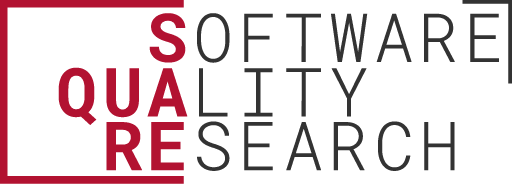Adam Alami will give a dry run of his PhD thesis presentation her work on the Social, organizational and disciplinary aspects of quality in free and open source software communities. Details below.
SPEAKER
Adam Alami, Postdoc, ITU.
TITLE
The Social, Organizational and Disciplinary Aspects of Quality in Free and Open Source Software Communities
ABSTRACT
Free and Open Source Software (FOSS) is an example of innovation model that does not rely on price or formal hierarchies nor alliance agreements. It may be described by the term “collective invention”. A review of history reveals a number of examples of private-collective inventions, but most of these did not survive past the development of a dominant design, but FOSS has.
Commitment to a community occurs because of the sense of autonomy FOSS contributors have, feelings of competence that grow as a result of successful contributions, and social relatedness. The FOSS production is a highly successful innovation model, and it survives the emergence of a dominant design, demonstrating it as a new innovation model. Collective invention in FOSS survives because of motivational aspects of contributors. Although FOSS has the unique characteristics of being an information product, a user innovation, and the result of a highly modular design, these factors do not fully explain why FOSS produces high quality products. It is understood that quality assurance techniques, methods and tools are deployed in FOSS development process to control quality. However, these practices are not the only source of quality. For example, additional factors that may explain this phenomenon are conditions that foster pro-social intrinsic motivation.
This dissertation asks how do social, organizational and disciplinary factors contribute to maintaining software quality in FOSS Communities? This dissertation shows that quality in FOSS communities is achieved when the environment facilitates some social, organizational and disciplinary enablers and desired features. I identified three enablers and two desired features. Enablers are qualities or capabilities that contribute at making quality possible in FOSS. Desired features are intended capabilities, when achieved they created a desired effect which is maintaining quality. The enablers are (1) motivation for quality, (2) governance for quality and (3) the ability to improve. The desired features are (1) active commercial participation and (2) retention of participants to sustain quality.
Software quality is a difficult attribute to achieve. Software are produced with bugs for more than 60 years now. Solutions to prevent bugs continue to progress and produced in both research and commercial contexts. However, these solutions keep to focus on the technical aspects of software development. Yet, software development processes continue to produce bugs. This is partially contributed to the neglect of other aspects (i.e. social, organizational and disciplinary) of software development processes. It is time to shift our research attention to the non-technical aspects of quality. This dissertation demonstrates that quality has social, organizational and disciplinary dimensions that should be acknowledged, nurtured and studied further.
Software quality is achieved by technical and non-technical instruments. This implies that managing and implementing software quality necessitate also managing and nurturing non-technical mechanisms. For example, passion for developing software should be acknowledged, nurtured and rewarded. Another example, software development projects should embrace quality and pitch it as a fundamental belief rather than just merely a checklist.
This Ph.D. is a collection of publications (listed below):
- Alami, Adam, Marisa Leavitt Cohn, and Andrzej Wasowski. “Why does code review work for open source software communities?” In Proceedings of the 41st International Conference on Software Engineering (ICSE), pp. 1073-1083. IEEE Press, 2019.
- Alami, Adam and Andrzej Wasowski. “Affiliated participation in open source communities.” In ACM/IEEE International Symposium on Empirical Software Engineering and Measurement (ESEM) (pp. 1-11). IEEE. 2019
- “A Tailored Participatory Action Research for FOSS Communities” (under review)
- Alami, Adam, Marisa Leavitt Cohn, and Andrzej Wasowski. “How Do FOSS Communities Decide to Accept Pull Requests?” In Proceedings of the Evaluation and Assessment on Software Engineering (EASE), pp. 252-258. 2020
- “The 7 Habits of Good Pull Request Evaluation” (under preparation)
